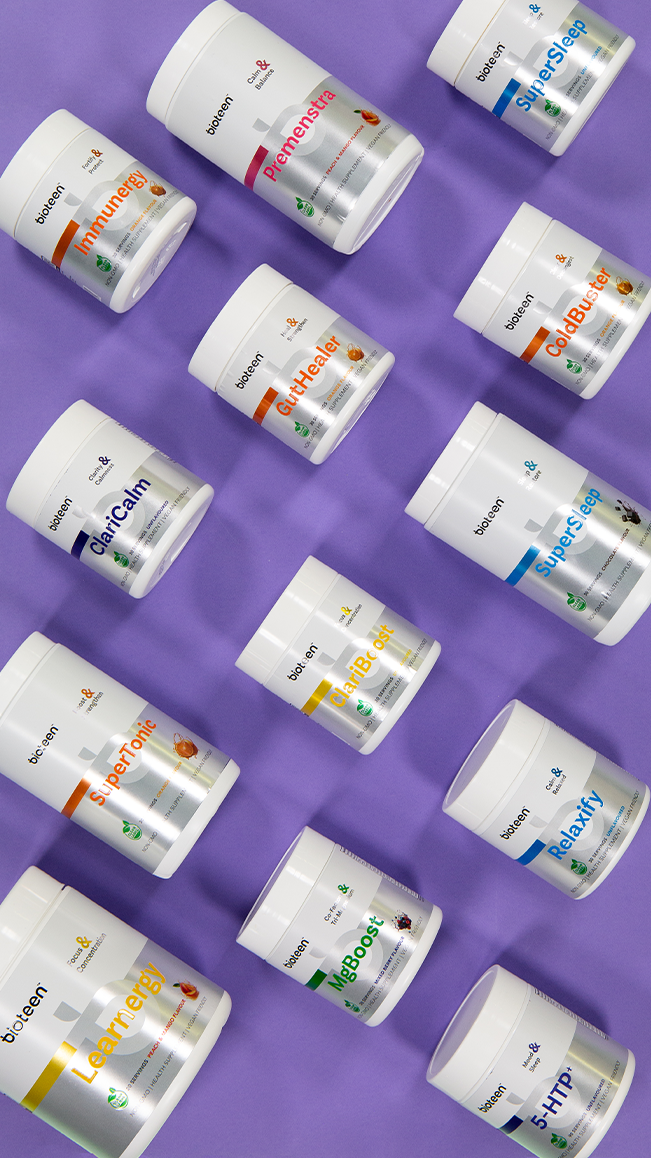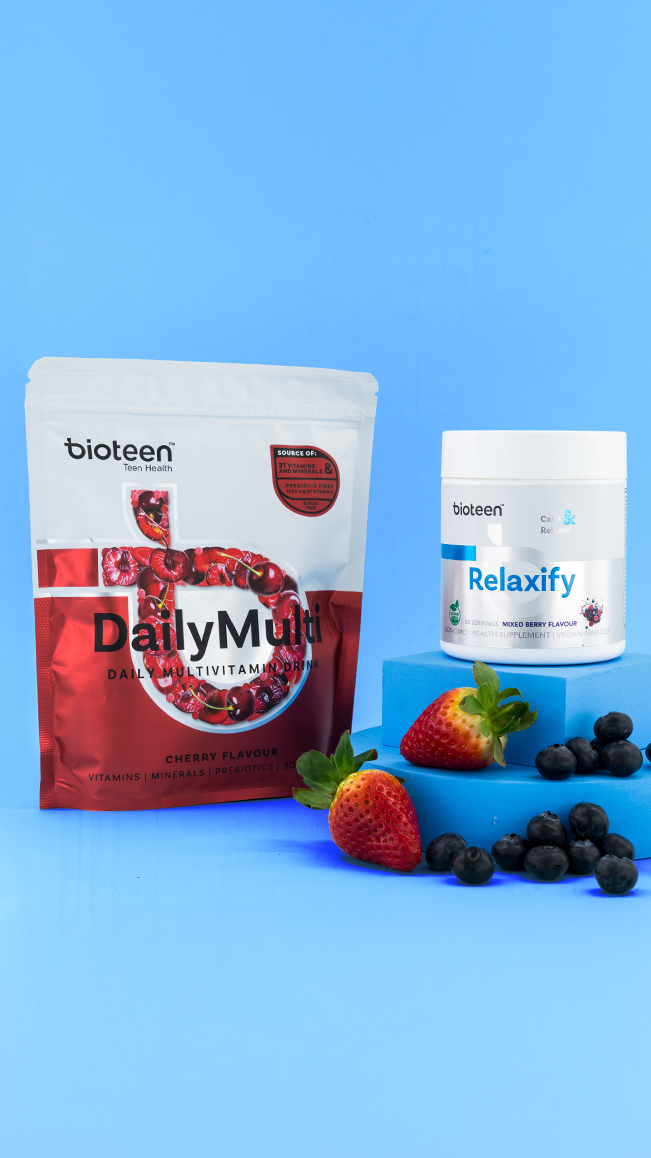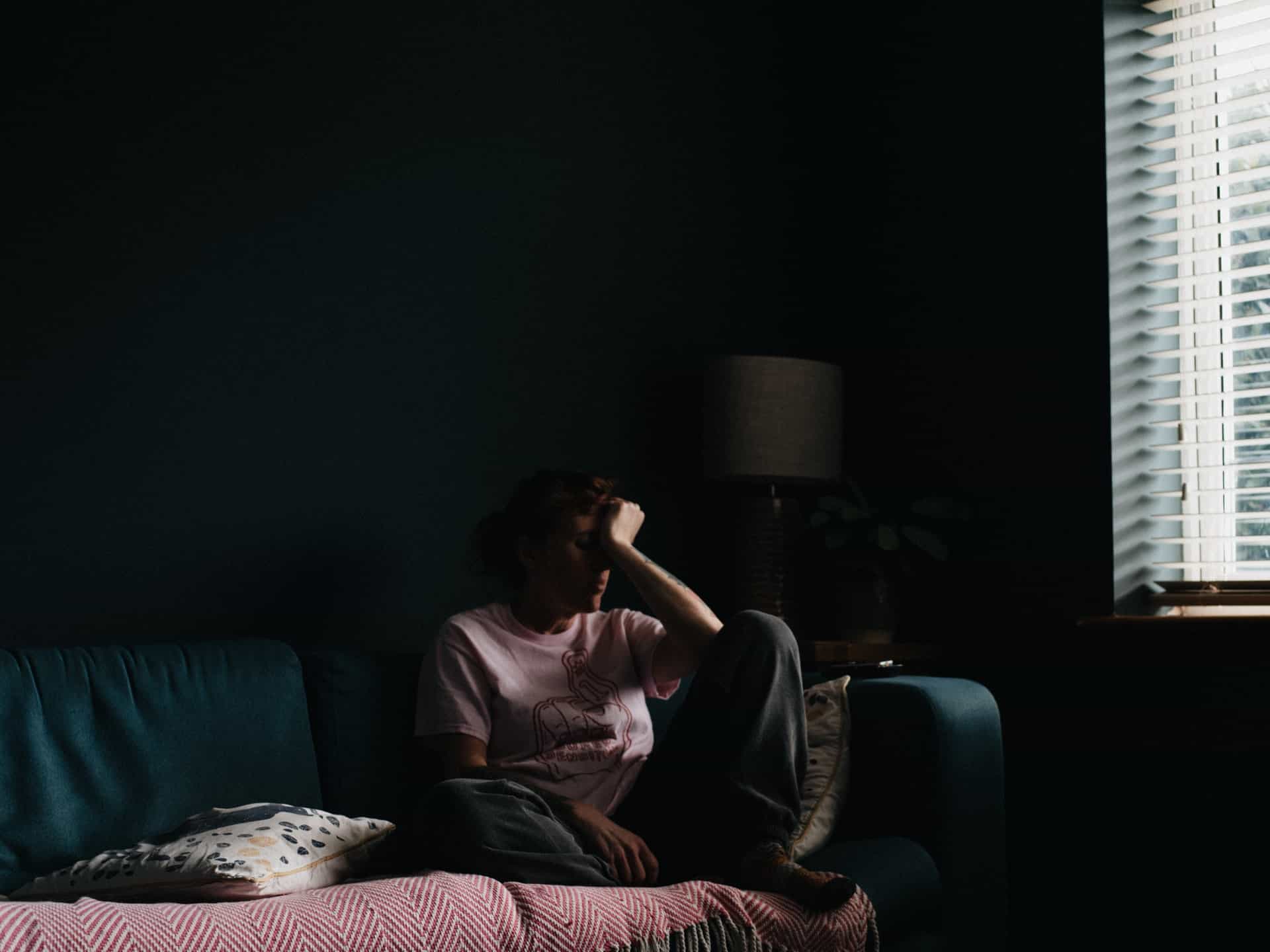
ANXIETY AND STRESS = A SUPPLEMENT APPROACH
The modern teenager is under an enormous amount of pressure. It often leaves them feeling stressed out, exhausted and overwhelmed. Their anxiety levels are high; driven by school, peers and social media. Left unchecked, depression is an all too common result.
The World Health Organisation (WHO) estimates that 10-20% of teens are battling mental health problems. Many of them are undiagnosed and not receiving the treatment they need to live a fulfilling life1. It is frightening to think that most mental health conditions begin in adolescents younger than 14 years old1.
The American Psychological Association (APA) conducts regular surveys on Americans’ mental health. They have seen a continuous increase in teenage stress levels year on year. From 2013, teenagers have reported higher levels of stress than adults2.
Considering that adolescence is a time of rapid development, we have to wonder what effect this kind of stress is having on the brains of our children. The teenage brain recovers well after short periods of stress. But, prolonged stress may have some long-term implications for brain function as adults3.
Stress, anxiety and depression in teenagers cannot be brushed off as a passing phase. Ignoring it places your teen at a greater risk for self-harm and suicide, not to mention long-term changes to brain structure and function.
THE HOLISTIC MANAGEMENT OF TEENAGE STRESS, DEPRESSION AND ANXIETY
All parents want the best for their children. Watching them struggle is heart wrenching. But it is not always easy to know what to do to help them.When it comes to anxiety, stress and depression, it is even harder. Teenagers are notoriously moody and sulky. It becomes important to really listen to your teenager and observe them for changes in their normal behaviour.
If your teen is feeling overwhelmed by stress, and showing signs of depression or anxiety, the time to act is now. The management of mental health problems is most effective if the condition is approached in a holistic manner4. The outcome for both adults and teens is better if the entire person is considered – not just the labelled mental health problem.
Most teens would much rather eat a packet of chips and a bar of chocolate washed down with a sugary drink than sit down to a healthy meal. Or they will pull a ready-made macaroni cheese out of the freezer when they get home from school. Fruit, vegetables and whole grains are not high on their list of priorities3.
There are two problems with this kind of food:
- It contains a lot of energy in the form of easily digested carbohydrates and sugar.
- They contain very little nutrition.
Mind, body and spirit need to be supported. The most common treatment for depression and anxiety is a combination of cognitive behavioural therapy and medication5. But, there are other things to consider. Relaxation techniques, yoga, mindfulness and gratitude journals have been shown to be beneficial6.
Lifestyle factors including sleep, exercise and nutrition cannot be ignored7. In fact, they are the foundation of good health – both physical and mental.
NUTRITION FOR THE MANAGEMENT OF STRESS IN TEENS
The stress response is a normal emotional reaction to something in your environment. It should be short lived. But teenagers today are dealing with chronic stress with persistently high levels of stress hormones. This combined with a poor diet places strain on the body, making it more likely that anxiety and depression will become a problem8.The best place to start addressing nutritional deficiencies is with a healthy diet. Make sure that your teenager eats regularly to meet their energy requirements, preventing a drop in blood sugar levels. Low blood sugar levels make it that much harder to deal with the pressures of everyday life.
Provide your family with foods full of nutrients. Encourage them to eat plenty of fruit and vegetables everyday – aim for at least five portions. Give them whole grain carbohydrates to boost energy levels and ensure that there is protein with every meal to provide amino acids which are the building blocks of all protein structures in the body.
Essential fatty acids are also important for mental health9. Include dark oily fish on your menu twice a week. It is the best source of omega-3 fatty acids. Use nuts, seeds and olives as health snacks.
THE NUTRITION SUPPLEMENT APPROACH TO STRESS, ANXIETY AND DEPRESSION
Quite often a healthy diet on its own is not enough to meet the demands of your teenager’s fast-paced life. It might be a good idea to consider using a supplement that addresses the nutritional deficiencies associated with poor mental health10.Nutrients to consider:
- L-theanine increases alpha waves in the brain that induce a sense of calmness and relaxation11.
- GABA (gamma amino butyric acid) increases a state of relaxation and helps to manage insomnia12.
- Myo-inositol helps to fight depression13.
- Magnesium promotes relaxation14.
- Zinc supports mood14.
- Taurine helps to prevent the overstimulation of the neurons15.
- B-vitamins, particularly niacin, pantothenic acid and vitamin B6, contribute to normal psychological functions.
HELP YOUR TEENAGER MANAGE STRESS, ANXIETY AND DEPRESSION
Our teens are dealing with a mountain of pressures on a daily basis. Their mental health cannot be ignored. When stress, anxiety and depression become a problem for your teen, they should be treated holistically with therapy, medication, relaxation techniques, mindfulness and lifestyle factors.Start with good nutrition. A healthy diet, combined with nutrition supplements ensure that your teen’s body is well prepared to take on the challenges of our modern world.
REFERENCES
- Adolescent mental health . Who.int. 2021 . Available from: https://www.who.int/news-room/fact-sheets/detail/adolescent-mental-health
- . Apa.org. 2021 . Available from: https://www.apa.org/news/press/releases/stress/2018/stress-gen-z.pdf
- Hueston C, Cryan J, Nolan Y. Stress and adolescent hippocampal neurogenesis: diet and exercise as cognitive modulators. Translational Psychiatry. 2017;7(4):e1081-e1081.
- Sreevani R, Reddemma K, Chan C, Leung P, Wong V, Chan C. Effectiveness of Integrated Body–Mind–Spirit Group Intervention on the Well-Being of Indian Patients With Depression. Journal of Nursing Research. 2013;21(3):179-186.
- Fulweiler B, John R. Mind & body practices in the treatment of adolescent anxiety. The Nurse Practitioner. 2018;43(8):36-43.
- Yen S, Ranney M, Tezanos K, Chuong A, Kahler C, Solomon J et al. Skills to Enhance Positivity in Suicidal Adolescents: Results From an Open Development Trial. Behavior Modification. 2017;43(2):202-221.
- Saneei P, Esmaillzadeh A, Hassanzadeh Keshteli A, Reza Roohafza H, Afshar H, Feizi A et al. Combined Healthy Lifestyle Is Inversely Associated with Psychological Disorders among Adults. PLOS ONE. 2016;11(1):e0146888.
- Firth J, Gangwisch J, Borsini A, Wootton R, Mayer E. Food and mood: how do diet and nutrition affect mental wellbeing?. BMJ. 2020;:m2382.
- Grosso G, Galvano F, Marventano S, Malaguarnera M, Bucolo C, Drago F et al. Omega-3 Fatty Acids and Depression: Scientific Evidence and Biological Mechanisms. Oxidative Medicine and Cellular Longevity. 2014;2014:1-16.
- Sarris J, Schoendorfer N, Kavanagh D. Major depressive disorder and nutritional medicine: a review of monotherapies and adjuvant treatments. Nutrition Reviews. 2009;67(3):125-131.
- White D, de Klerk S, Woods W, Gondalia S, Noonan C, Scholey A. Anti-Stress, Behavioural and Magnetoencephalography Effects of an l-Theanine-Based Nutrient Drink: A Randomised, Double-Blind, Placebo-Controlled, Crossover Trial. Nutrients. 2016;8(1):53.
- Kim S, Jo K, Hong K, Han S, Suh H. GABA and l-theanine mixture decreases sleep latency and improves NREM sleep. Pharmaceutical Biology. 2019;57(1):64-72.
- Jupp B, Sawiak S, van der Veen B, Lemstra S, Toschi C, Barlow R et al. Diminished Myoinositol in Ventromedial Prefrontal Cortex Modulates the Endophenotype of Impulsivity. Cerebral Cortex. 2020;30(5):3392-3402.
- Jakaria M, Azam S, Haque M, Jo S, Uddin M, Kim I et al. Taurine and its analogs in neurological disorders: Focus on therapeutic potential and molecular mechanisms. Redox Biology. 2019;24:101223.
- Young L, Pipingas A, White D, Gauci S, Scholey A. A Systematic Review and Meta-Analysis of B Vitamin Supplementation on Depressive Symptoms, Anxiety, and Stress: Effects on Healthy and ‘At-Risk’ Individuals. Nutrients. 2019;11(9):2232.












